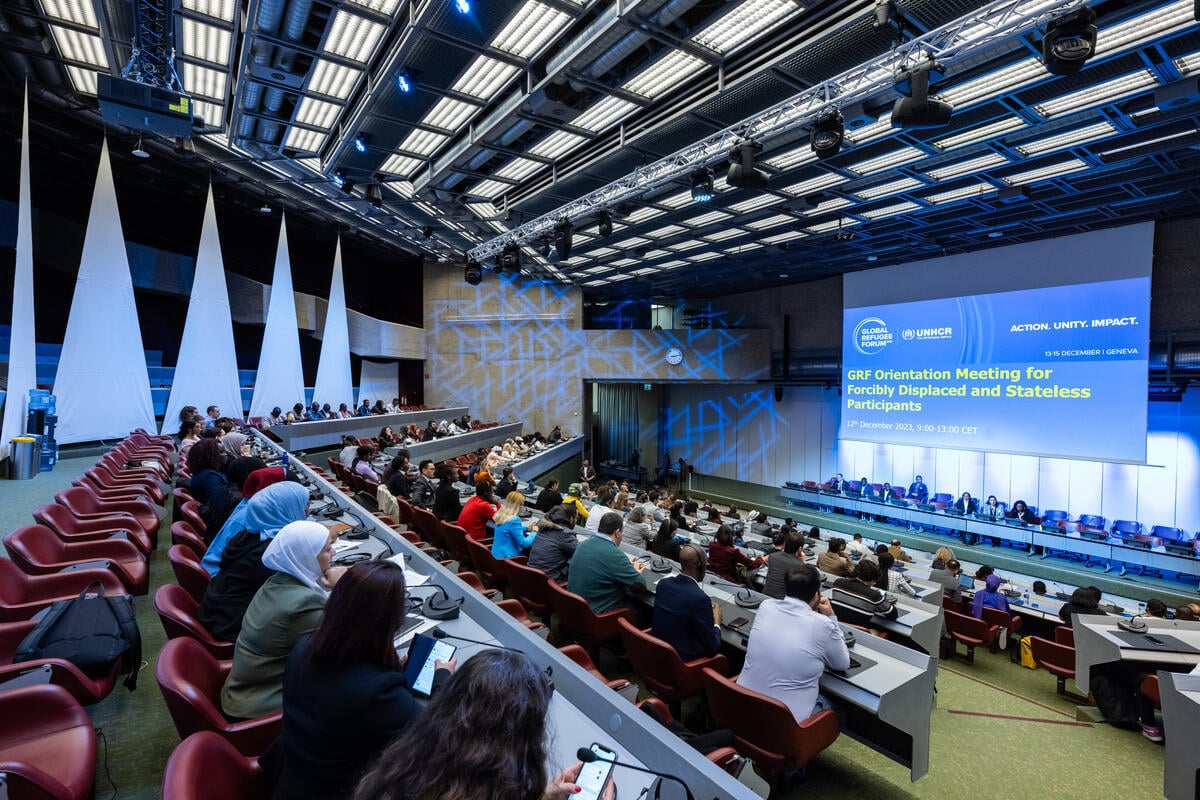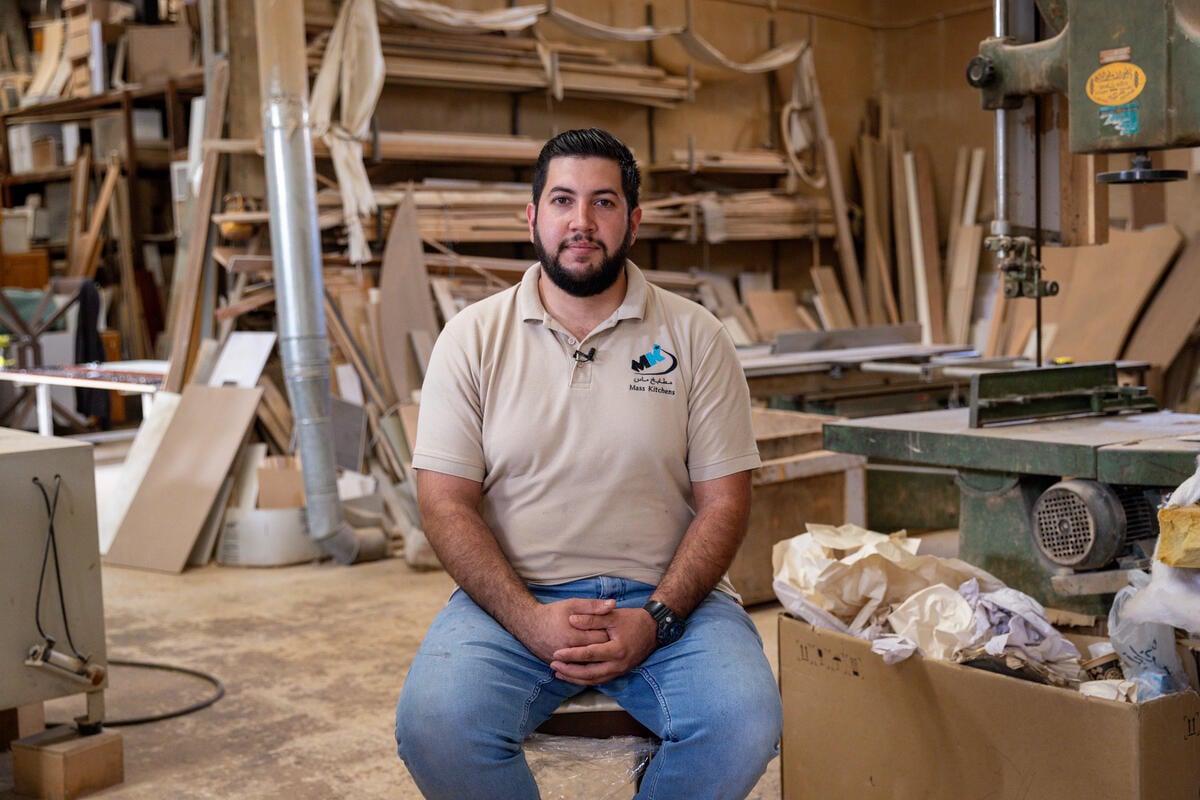UNHCR concerned about Palestinians on Jordan/Iraq border
UNHCR concerned about Palestinians on Jordan/Iraq border
UNHCR is concerned about the situation of hundreds of refugees who have been stuck in camps near the border between Jordan and Iraq since April.
An estimated 1,800 people are living in refugee camps in eastern Jordan. More than half of them are stuck and in no-man's-land. Most are Iranian ethnic Kurds who fled Iraq's Al Tash refugee camp. The second largest group are Palestinians who had previously lived in exile in Iraq. Last August, Jordan agreed to accept 386 Palestinians with Jordanian spouses. However, 427 still remain in UNHCR's care.
Conditions in the border camps are worsening with the approaching winter. While we're trying to ready these sites for the rigours of the winter cold and winds, the refugees will remain sheltered under canvas tents and will have to rely on simple cooking and heating stoves for warmth. The situation at the frontier is particularly acute for the 427 Palestinians, who are unaccustomed to the hardships of camp life.
We are appealing to all concerned parties to help find a solution for them. Jordan has already set a positive example by accepting almost half the original group. Now a solution must be found for the rest. Most of the Palestinians have Iraqi resident documents, while 14 hold Egyptian papers and three have Lebanese travel documents. None have so far expressed a desire to return to Iraq, and we do not consider Iraq to be conducive for return.
Many have expressed a readiness to go to the West Bank and Gaza, as well as to Israel. As with all refugees, our primary focus is the lasting solution of returning to their homeland in safety and dignity. Return to Israel as well as to the West Bank and Gaza strip should be considered as part of a comprehensive solution. UNHCR stands ready to discuss this with Israel and the Palestinian Authority.
We also believe that other states in the region can play a part in helping to find a place for these 427 persons. Jordan's capacity to absorb more refugees is reaching its limits, as it already hosts the world's largest group of Palestinian refugees. We are appealing to Egypt and Lebanon to grant individuals holding travel documents issued by these two states to permit them to reenter. It is also vital that other Arab and non-Arab countries share the burden by offering them temporary residency so that they might get employment and access to social services until a more durable solution is found. Resettlement outside the region will be considered if all regional options fail.








